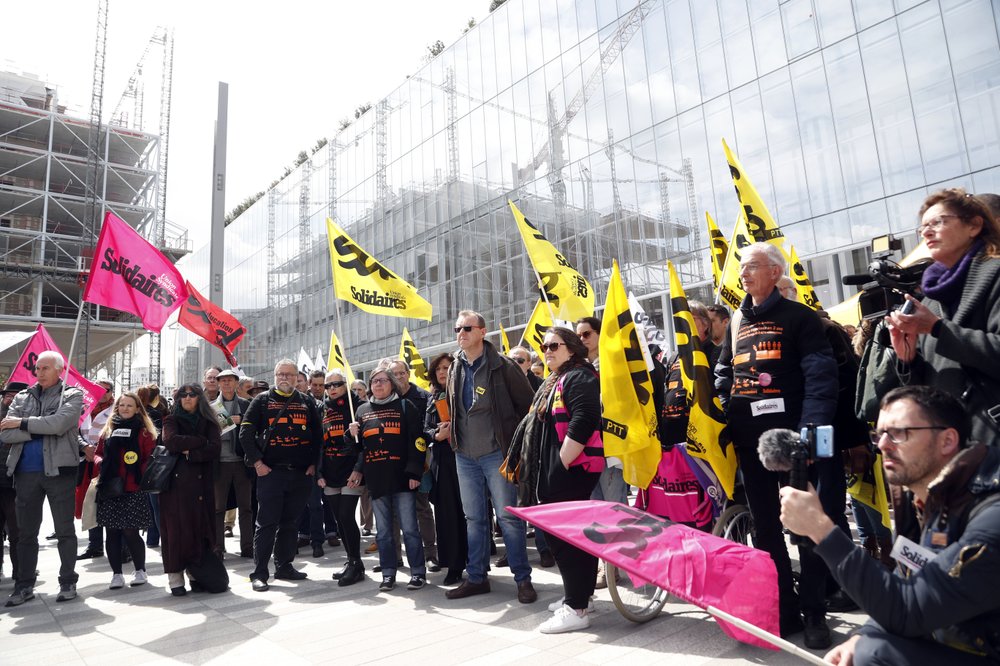“Nobody knows anything about us, neither the liberals nor the Islamists. They are just busy with the constitution and other things,” a worker at an informally built industrial area near Abu Zabaal, Qalyubia, said on a TV show.
The words of this worker summarize how workers and the poor feel toward the various political groups and the constitution they are currently drafting.
This raises the question as to whether Egypt’s new constitution will guarantee a decent life for those people. Are its articles going to offer the poor rights to life, work, housing, healthcare and education? Or are they going to remain forgotten in the constitution, as they are in life?
The answer one gets when reading the debated draft is that the new constitution is totally biased to the powerful: the capitalists, security institutions, major political powers, influential professional groups and other similar groups. Each of these groups will create a fuss over the slightest thought that the new constitution does not incorporate their demands, as though it were a document for various interest groups to register their narrow demands.
The interests of the vast majority of the people, meanwhile, remain forgotten.
Property and work
Take the example of how the constitution treats the rights to “property” and “work.”
The constitution reassures entrepreneurs about their businesses, even if they do not give workers their rights.
There are four articles (6, 21, 26 and 27) that emphasize the maintenance of private ownership and the illegality of sequestration, expropriation or nationalization of property or the confiscation of funds, except if this is done in the public interest, in conformance to the law and in return for a fair compensation.
However, the constitution does not define public interest. At present, hundreds of factories are being shut down, with thousands of workers being laid off and deprived of their incomes. In most of these cases, the investor will have exploited all privileges and exemptions while at the same time becoming heavily indebted to public banks.
So is the confiscation of these factories that have been closed by their owners something that serves the public interest?
Concerning the right to work, Article 57 has failed to place any obligation on the state to safeguard the right to work through the creation of job opportunities for job seekers. Indeed, the draft says the state should guarantee fair pay, leave and safe working conditions, but it does not specify rules that a business owner is obliged to follow.
Furthermore, the draft allows a business owner to dismiss a worker in certain cases, which are to be mentioned in the law. This means the right to work is not guaranteed by the constitution. The law here can curtail the constitution’s ruling, rather than the other way round.
And while the constitution is vague regarding adults’ right to work, it unashamedly legalizes child labor. Article 67 allows the employment of children in the age of compulsory education in jobs “suitable for their age.” This is a disgrace. The expectation was that Egypt’s constitution after the revolution would be preoccupied with how to end child labor.
Political and trade union rights
With regards to workers’ political and trade union rights, it is true that the draft upholds the right to strike, but Article 57 says the law should organize this right.
This is an experience we have had before. Under the current laws, there are several impediments to the right to strike that render it practically impossible to exercise.
And even though Article 49 refers to the right to form trade unions and cooperatives, it has tied their organization to the law, while parties and associations can be easily set up by notifying authorities — which is the normal procedure — and the law is only relevant in as far as it organizes the practical steps of a certain right.
Regarding workers’ basic right to political representation, the draft constitution has abolished the 50 percent quota allocated to workers and farmers in Parliament, a step that former President Hosni Mubarak’s regime dared not take.
Amusingly, those who defend the abolition of the 50 percent provision hold that it was never used properly. If this is the case — which it is — then why did they not propose implementable solutions? Does the abuse of a certain right call for its abolition, instead of ensuring it is put to good use?
After reading the draft constitution over and over again, one cannot prevent herself from asking: Is this “a constitution for all Egyptians,” as the TV ads keep promising us? I dare to say that, apart from the rhetorical phrases, this constitution re-endorses the whole neo-liberal package that was forced upon us under Mubarak, but this time with a new, cosmetic identity called Islamism.
Fatemah Ramadan is a leading trade unionist in the Egyptian Federation for Independent Trade Unions.
This piece was originally published in Egypt Independent's weekly print edition.




